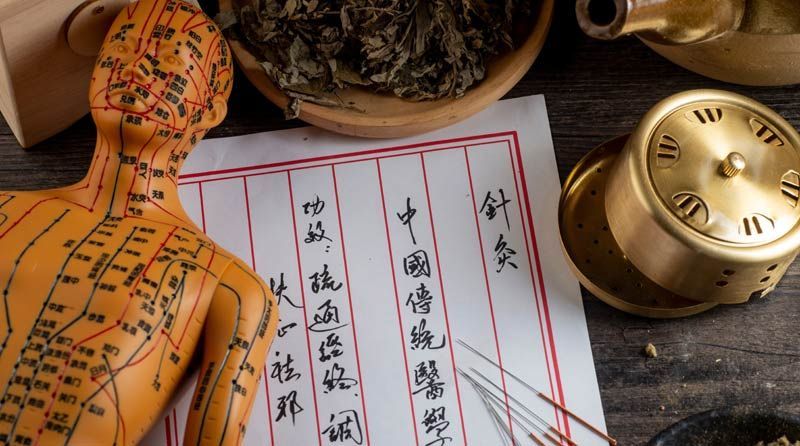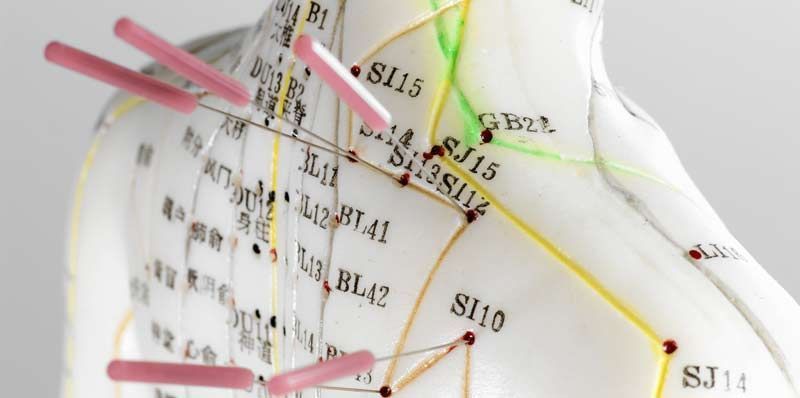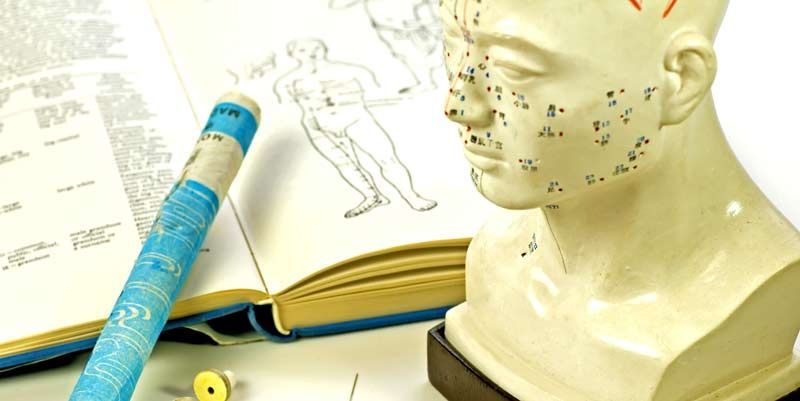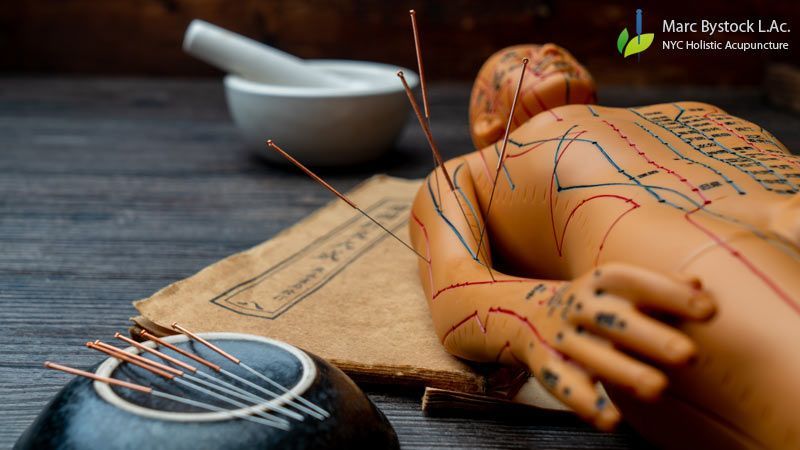Traditional Chinese Medicine Principles
Understanding the fundamental principles of Traditional Chinese Medicine, including Yin and Yang, Qi, and the Five Elements, provides valuable insights into holistic health practices like acupuncture. By recognizing the intricate connections between physical, emotional, and environmental factors, individuals can embrace a more comprehensive approach to their health.

Exploring the Foundations and Benefits of Traditional Chinese Medicine (TCM)
Traditional Chinese Medicine (TCM) is an ancient system of health care that has been practiced for thousands of years, emphasizing a holistic approach to health and well-being. Unlike Western medicine, which often focuses on isolated symptoms, TCM considers the complex interplay between physical, emotional, and environmental factors. Understanding the fundamental concepts of TCM, including Yin and Yang, Qi, and the Five Elements, is essential for appreciating how these principles relate to practices such as acupuncture. This blog post will explore these core ideas, providing insights into how they inform TCM and contribute to overall health.
The Concept of Yin and Yang
At the heart of TCM lies the principle of Yin and Yang, a duality that represents the interconnectedness and interdependence of opposing forces in nature. Yin is associated with qualities such as darkness, coolness, passivity, and nourishment, while Yang embodies brightness, warmth, activity, and vitality. According to TCM, health is achieved through a delicate balance between these two forces, and any disharmony can lead to illness. This principle applies not only to the body but also to emotions, environments, and social relationships. For example, excess stress (Yang) can lead to anxiety, whereas a lack of social interaction or stimulation (Yin) can result in feelings of isolation or depression. Through acupuncture and other TCM practices, practitioners work to restore balance, promoting harmony and health.
The Flow of Qi
Qi, often translated as "life force" or "vital energy," is another foundational concept of TCM. According to TCM, Qi flows through the body along pathways called meridians, which connect different organs and systems. The unobstructed flow of Qi is essential for maintaining health, as it nourishes the body's tissues and supports immune function. When Qi is stagnant or blocked—due to stress, poor diet, or lifestyle factors—it can lead to various health issues. Acupuncture works by stimulating specific points along these meridians, promoting the smooth flow of Qi and correcting imbalances that contribute to illness. Practitioners often evaluate a person’s Qi through pulse and tongue diagnosis, assessing its quality and flow to determine appropriate treatment strategies.
The Five Elements Theory
The Five Elements theory is integral to understanding the natural world and its impact on human health. The five elements—Wood, Fire, Earth, Metal, and Water—represent various aspects of nature and their associated characteristics. Each element correlates with specific organs, emotions, and physical elements. For instance, Wood relates to the liver and frustration, Fire corresponds to the heart and joy, Earth represents the spleen and worry, Metal is linked to the lungs and grief, and Water corresponds to the kidneys and fear. In TCM, maintaining balance among these elements is vital for optimal health. Imbalances in any element can lead to corresponding health issues. Acupuncture can be used to restore harmony among the Five Elements by encouraging the appropriate flow of Qi and revitalizing the associated organs.
The Role of Acupuncture in Traditional Chinese Medicine
Acupuncture is one of the key methods used in TCM to facilitate healing and restore balance within the body. By inserting fine needles at specific points along the meridians, practitioners seek to enhance the flow of Qi, correcting any blockages that may lead to pain treatments or illness. Each acupuncture point corresponds with particular organs and elements, aligning with the principles of Yin and Yang and the Five Elements. The treatment may also involve an assessment of the patient’s overall health, taking into consideration their emotional state, environment, and lifestyle. The comprehensive nature of this approach allows acupuncturists to tailor treatments based on each individual's unique health needs.
The Importance of Diagnosis in Traditional Chinese Medicine
Diagnosis in TCM differs significantly from Western medical practices, where tests and imaging are commonly used. Instead, TCM practitioners utilize methods such as pulse and tongue diagnosis, observing specific characteristics that convey vital information about a person's health. The quality, strength, and rhythm of the pulse can reveal imbalances in Qi and blood flow, while the appearance of the tongue—its color, shape, and coating—provides insight into the functioning of internal organs. This holistic diagnostic approach allows practitioners to understand not just the current symptoms but the underlying imbalances that contribute to the patient's overall health.
Lifestyle and Dietary Considerations
In TCM, lifestyle and diet play critical roles in health maintenance and disease prevention. Practitioners emphasize the significance of seasonal eating, where dietary choices align with nature’s cycles. For example, consuming warming foods during colder months promotes Yang energy, while cooling foods during warmer months supports Yin. TCM also considers how certain foods affect the body based on their energetic properties. A balanced diet that corresponds to an individual's unique constitution, health conditions, and current climate is seen as essential. Beyond diet, TCM encourages practices such as Tai Chi, Qi Gong, and meditation to promote overall health by enhancing Qi flow and fostering emotional balance.
Integrating Traditional Chinese Medicine with Conventional Medicine
As the understanding of TCM continues to grow, there’s an increasing interest in integrating its principles with conventional medical practices. Many healthcare practitioners, including doctors and specialists, recognize the potential benefits of TCM, especially in areas such as pain management, stress reduction, and chronic disease prevention. Collaborative approaches, where TCM practitioners and conventional healthcare providers work together, can lead to improved patient outcomes by complementing treatments and addressing various aspects of health. Patients interested in TCM should seek qualified practitioners with appropriate training and experience to ensure safe and effective treatment.
Patient Experiences: Testimonials of Traditional Chinese Medicine Success
Listening to patient experiences can illuminate the practical applications of TCM principles in everyday life. Many individuals report significant improvements in their health after seeking TCM treatments, whether for chronic conditions like anxiety, digestive issues, or chronic pain. One patient recounted how acupuncture transformed her approach to managing stress. After struggling with the side effects of medication, she turned to acupuncture and found the treatment significantly reduced her anxiety levels, promoting relaxation and an improved sense of well-being. For others, TCM has offered a holistic avenue for managing long-term health issues, emphasizing preventive care and a balanced lifestyle.
Moving Forward: The Future of Traditional Chinese Medicine and Acupuncture
As Western societies increasingly embrace holistic health approaches, the principles of TCM are poised for greater acceptance and integration into mainstream healthcare. Education about the benefits of TCM and acupuncture plays a crucial role in this shift, promoting an understanding of how these methods can complement conventional practices. As research in this area expands, more healthcare professionals are likely to incorporate TCM principles into their treatments, leading to enhanced patient care that encompasses both traditional and modern healing methods.
Conclusion
Understanding the fundamental principles of Traditional Chinese Medicine, including Yin and Yang, Qi, and the Five Elements, provides valuable insights into holistic health practices like acupuncture. By recognizing the intricate connections between physical, emotional, and environmental factors, individuals can embrace a more comprehensive approach to their health. As the landscape of healthcare continues to evolve, integrating the time-honored wisdom of TCM with contemporary medical practices offers promising avenues for achieving improved health outcomes and overall well-being.












